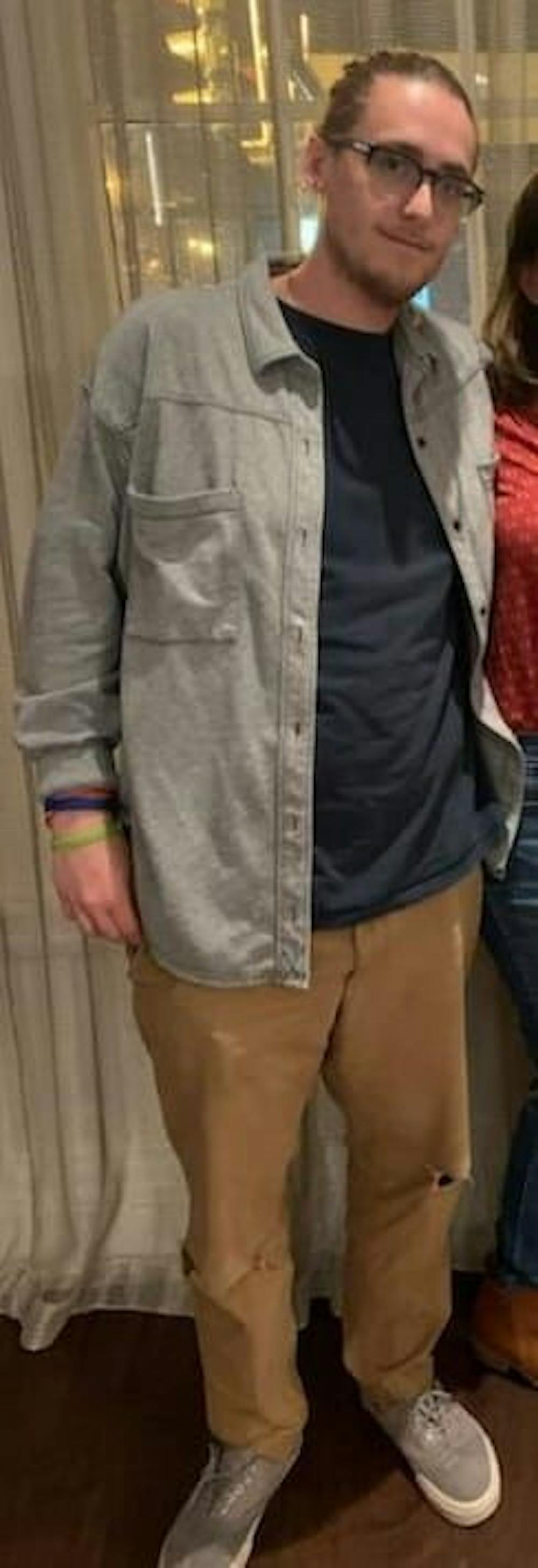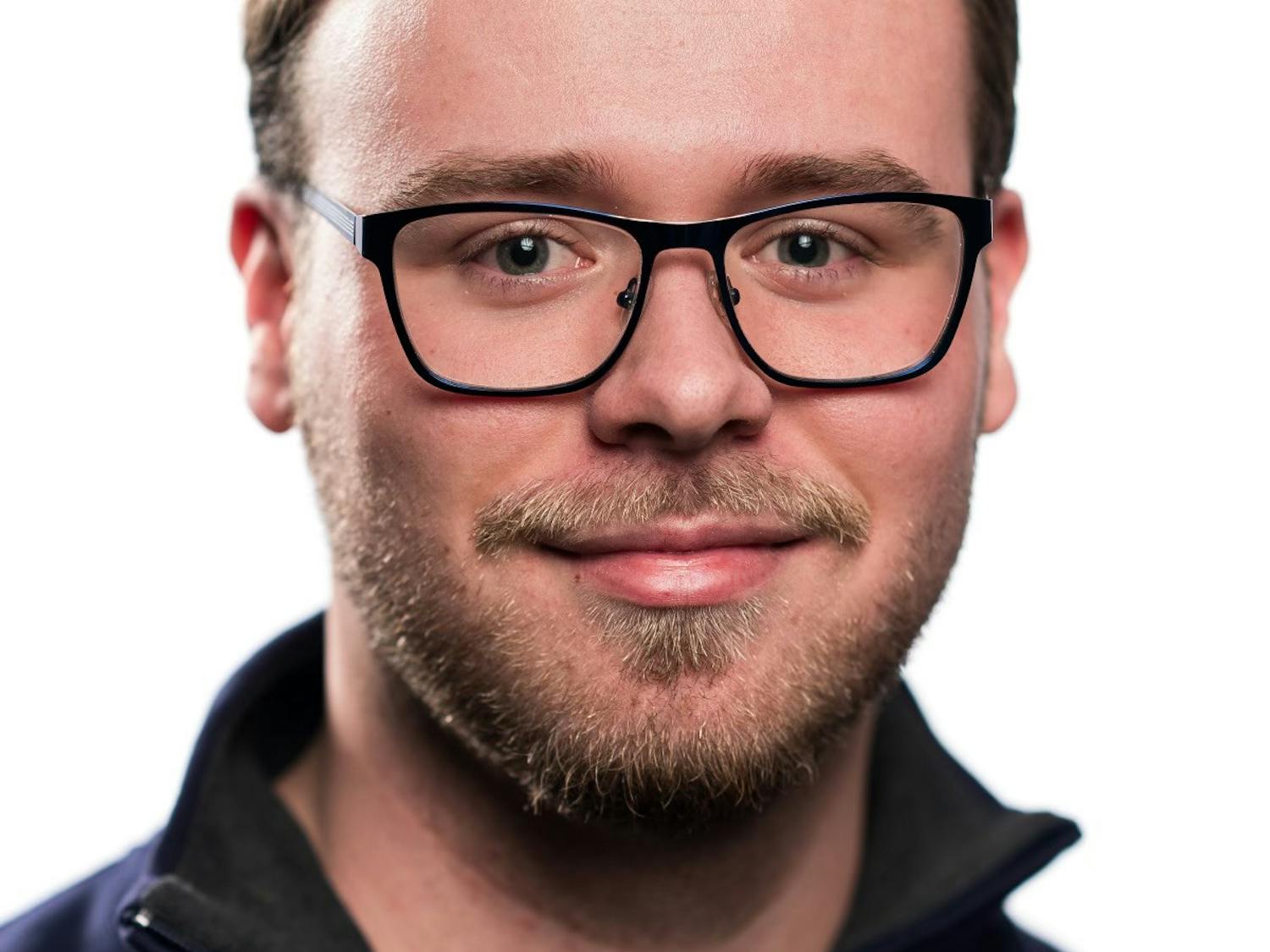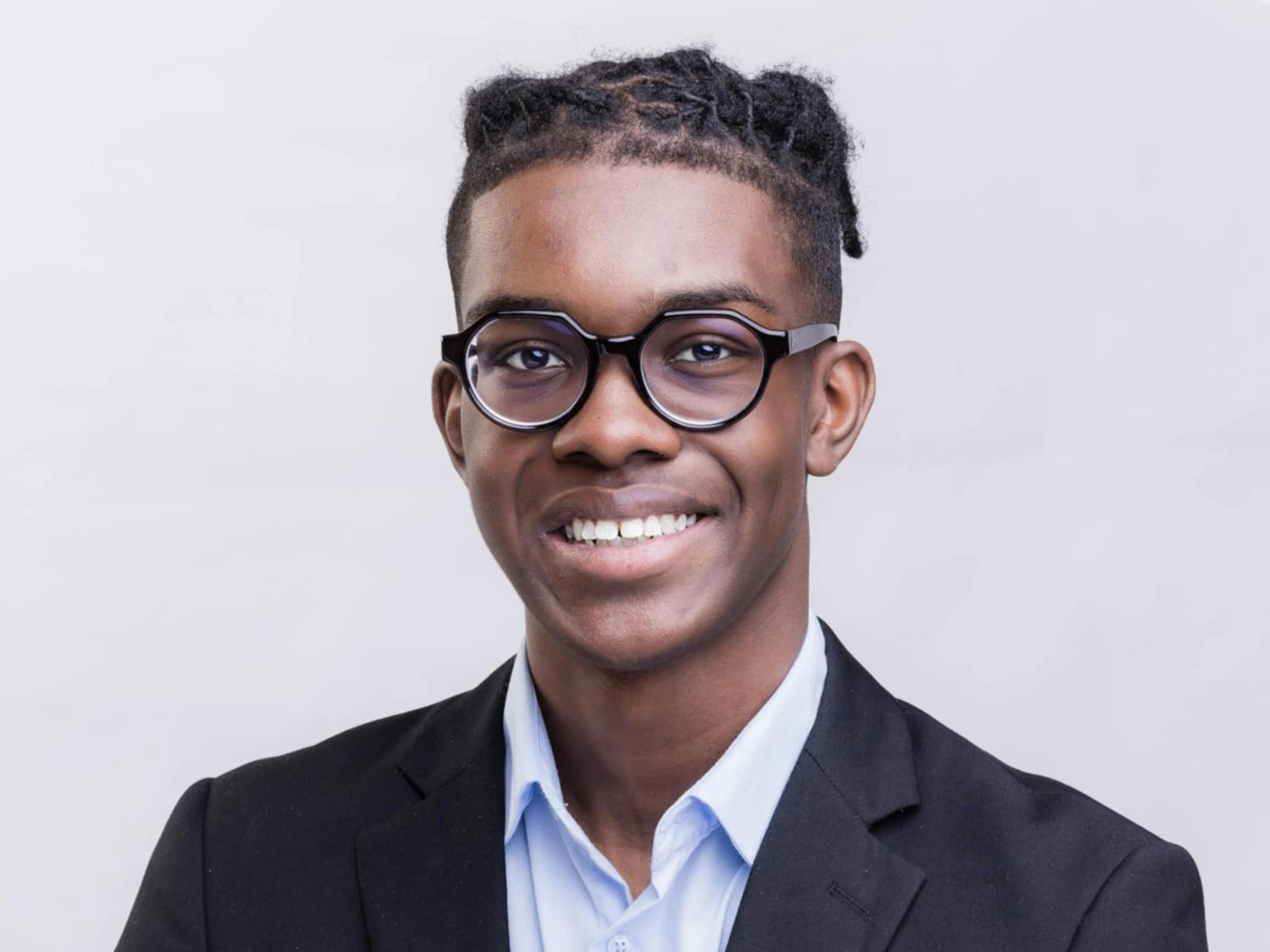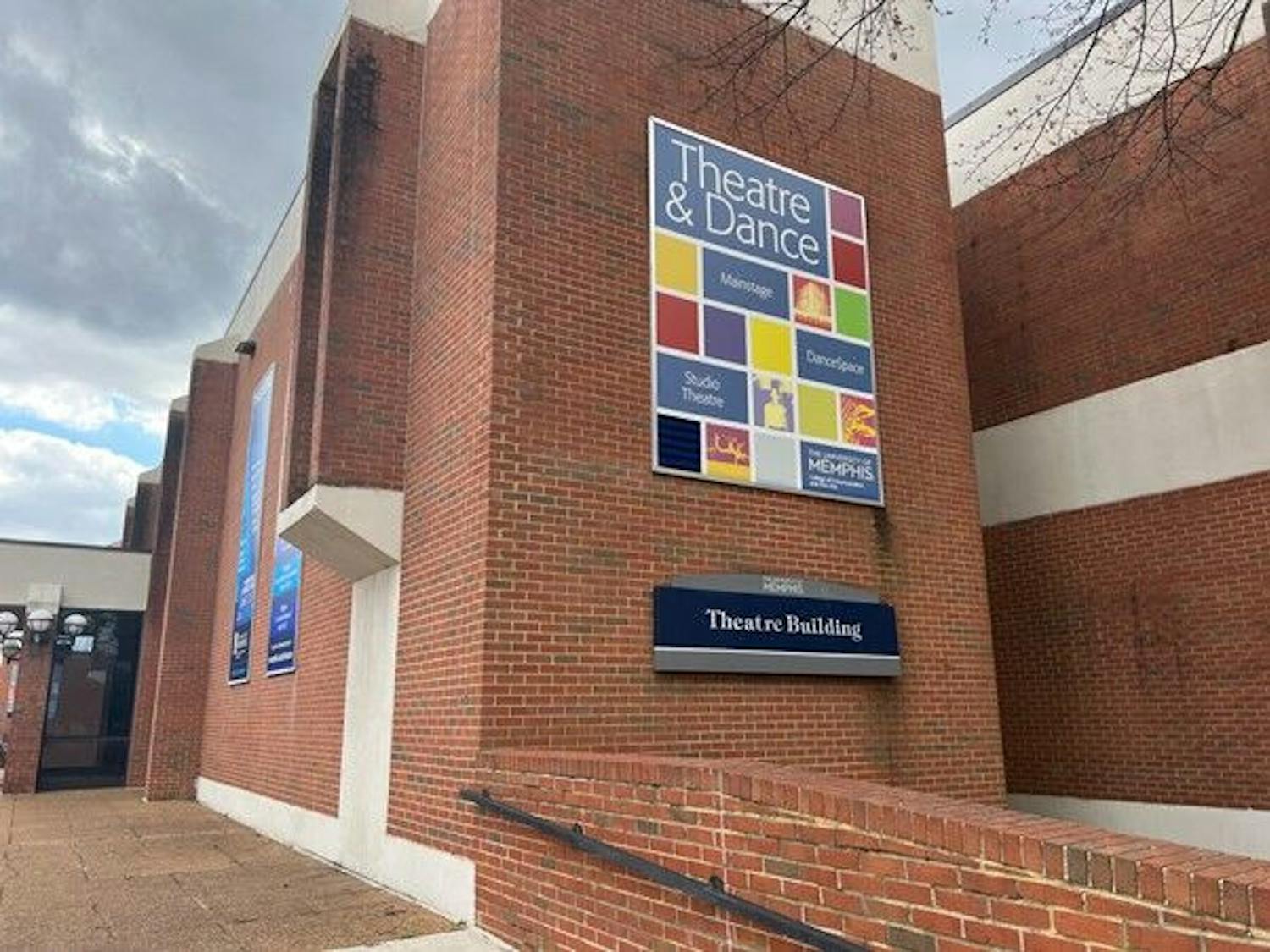When any form of sexual harassment or assault is alleged to have taken place on campus, the Office for Institutional Equity (OIE) investigates. Their sole purpose during that process, according to the website’s mission statement, is to provide a fair and unbiased process to resolve allegations such as these.
One University of Memphis student is alleging OIE cannot be impartial in these situations. He wonders if a branch of a university can be unbiased in these situations and what happens when those meant to protect victims, instead protect the perpetrator of sexual harassment.
Josh Swiatek, a graduate student in the anthropology department, is dealing with the fallout from what he believes is a biased decision spawned from an incomplete investigation into allegations of sexual harassment by a tenured professor toward him.
Swiatek provided several documents from the case for the Daily Helmsman to review and OIE declined to comment about the investigation and case. He first reported the alleged harassment to his now former academic advisor in November 2020, who – in turn – filed the original complaint with OIE.
“I had talked to my advisor and said that I was being made uncomfortable by stalkerish messages and things like that from a professor,” he said. “The professor was taking pictures of apartments and asking me if that's where I live. [The professor was] out telling me they fantasize about seeing me at the dog park while they're jogging. It was unprofessional, especially considering it was a professor in a class I was in. It was bothering me, so I confided in my advisor.”
The alleged harassment began in the midst of the pandemic, just over a year after Swiatek made the 900 mile move from his home in Buffalo, New York. He had earned undergraduate degrees in history and anthropology from Canisius College five years prior, where he fell in love with the latter subject in similar fashion to other students: pure chance.
“I think anthropology kind of found me, really. I took an intro socio-anthropology course and I didn't even know what it was at the time,” Swiatek said. “I just fell in love with it.”
He credits the professors at the small liberal arts college, whom he forged strong relationships with during his time there, for encouraging his pursuit of a graduate degree in the subject. He would go on to be accepted to five schools – SUNY Albany, Binghamton and Buffalo along with the UofM and University of Louisville.
“I think it was time to leave Buffalo and venture out into the world,” Swiatek said. “Memphis was also the only one that came with a funded offer, so that was the biggest reason for coming. But I also lived in Nashville for a few years as a kid, so I do have some local Tennessee ties.”
Swiatek thrived in the interactive environment during his first semester at UofM in fall 2019. By fall 2020, he was elected as the Graduate Student Association’s (GSA) representative to the College of Arts and Sciences and also began to work on the Anthropology Department’s diversity, equity and inclusivity (DEI) committee. The following spring, he pushed the GSA to form its own DEI committee – which he joined after it was formed.
The pace of classes provided a challenge, which he said he took head on, but the challenge was offset by the slower pace of living in Memphis. But this was all uprooted when the pandemic shut down classes the following spring. From there, his struggles only compounded.
“That shift changed everything for a lot of people. My cohort and other students and department started to kind of fall apart. So the end of that semester was hard. It was hard. Last spring and fall just kept weighing on. And then, obviously, the stuff started happening.”
The “stuff” Swiatek referred to came after confiding in his former advisor, who he says turned around and informed the professor he says was subjecting him to stalking and sexual harassment – prior to filing the November complaint that would turn into his ongoing battle with OIE.
Swiatek first met the professor in a spring 2020 class and developed a professional relationship throughout that summer, but the alleged harassment did not begin until the following fall.
Swiatek’s Dec. 2020 OIE intake form read: “... [the professor] started sending messages that made JS uncomfortable; [the professor's] messages were a little too intimate at times and dismissive/hurtful at other times; [the professor] took pictures of apartment buildings and asked if JS lived there; JS tried to talk to [the professor] about the situation on 10/9, it did not go well; JS reduced contact with [the professor] as much as possible; JS has concerns about fair grading in his class with [the professor].”
At the time of the form’s completion, he was uncertain about pursuing any reporting options, but requested academic accommodations and academic support services. Swiatek said both of these were never granted.
That December meeting would end with OIE telling Swiatek they would reach out to him after the start of the new year. By the time March rolled around with no word from the department, he reached out to ask about the follow-up meeting.
“OIE never reached out in the new year. I finally reached out to them in March because I was still struggling with classes as well,” he said. “In the fall, the classroom became a very toxic space. They ghosted me at that meeting, nobody showed up. Emily Richardson Gerrell (Coordinator of Institutional Equity) emailed me the day after, so I set up another meeting. I needed help. I asked for it. OIE did nothing to help me. There was this whole conversation that OIE would reach out again in about a week, but they never reached out.”
Swiatek, again, never received the academic accommodations he sought. He spent the following days waiting for a follow-up from OIE that never came. At this time, he had still not filed a formal complaint himself, so – hoping he would receive recognition of his complaint and accommodations – he filed a formal complaint. He says he waited 17 days for the complaint to be acknowledged, in which time it was not.
After those two and a half weeks had passed with no response from OIE, Swiatek followed up with another email, this time copying Tiffany Baker-Cox – director of OIE and the chief compliance officer who stepped down at the beginning of the fall 2021 semester. That email set the investigation in motion and Swiatek had his interview with equity specialist Margie Griffin on April 26, 2021 after the professor was interviewed.
“She was very aggressive,” Swiatek said of Griffin. “She kind of badgered me for information. She raised her voice. I found her tact to just be very inappropriate considering the situation.”
Following the interview, Swiatek emailed Griffin a list of witnesses for her to reach out to over the course of her investigation.
“I gave them six witnesses, they only interviewed three of the witnesses I submitted,” he said.
The investigation spanned two months following his interview and the initial report was released on June 15. However, Swiatek says a case determination was attached to that report. According to his timeline, this places the determination prior to any hearing taking place.
“At that point, I was just incredulous, but also felt dismissed and hurt to a certain extent,” Swiatek said. “They then reissued the second report without the determination, without acknowledging the mistake or anything. That actually got me more fired up than the original determination. They just pretend I'm eight months old and haven't obtained object permanence. It was like they were playing peekaboo with it. It's still there, your face is still behind your hands. Talk about it, own up to it, show some accountability.”
Not included in the drafted investigative report were text messages between Swiatek and the professor, which he believed were some of the most significant pieces of evidence supporting his case.
Current OIE Coordinator Emily Richardson Gerrell would not comment on the specific case, citing privacy concerns for both parties, but spoke to a Daily Helmsman reporter about the generalities of the formal investigation process.
“[Investigators will] write up an investigative report and that investigative report just goes over what all they learned about the situation,” Richardson Gerrell said. “Once they've got a draft of the investigative reports, it gets sent back to each party so that they can offer any corrections just to make sure that the information they shared with us was received correctly. So it gets sent to both parties, but the complainant can't correct the statement given by the respondent and the respondent can't correct the complainant. But what they submit, if there's anything that we didn't understand correctly, they can correct that. Once they've offered their corrections, the investigator can issue a final report. Then a hearing panel is gathered. And that hearing panel is composed of the faculty and staff members who have been trained on how to participate in Title IX hearing processes. And then the hearing panel holds a live hearing process.”
In simple terms, OIE has a five-step investigation process. Everything begins with an initial complaint and both parties are informed of their rights throughout the process. This is followed by an investigation process if the incident cannot be resolved informally. This process includes interviews of those directly involved, witness testimony and a collection of evidence. Written responses from both the complainant and the respondent are also collected. Following the investigation, a report is created and then issued to both parties. A 10 business day period is then allowed for the parties to appeal the reports findings, which will then be addressed by a hearing officer in an official hearing. Finally, sanctions are levied by respective offices if a policy violation is deemed to have occurred.
While the pyramid shown above roughly depicts the process, Richardson Gerrell said it is not quite indicative of all the options presented when someone reports sexual misconduct. She also said many of the original complaints never move beyond the informal resolution process.
“Some people come to me and say, ‘You know, I just want this person to leave me alone forever. And if they leave me alone forever, then we're good,’” she said. “So we might do something like an informal resolution that includes a no contact directive that just says that person doesn't speak and doesn't interact with the other person, and vice versa. You don't interact with them either.”
Interim measures – such as changing classes, changing housing assignments and a change in the work environment – are also available to someone filing a complaint if they request them. Swiatek, throughout the process, asked for a class accommodation but was met with nothing. This is not unheard of from OIE, though.
After rape allegations were levied against Nick Wayman in 2017, who would ultimately enter a guilty plea for kidnapping on 2020, the female victim filed a lawsuit stating she “...was forced to choose between attending classes with Wayman or skipping classes. OIE did not even take immediate steps to prohibit Wayman from having contact with the Plaintiff.” At that time, the lawsuit alleges OIE Coordinator Michael Washington advised her to drop out of classes or take online courses for the remainder of the spring 2017 semester.
Swiatek’s case reached a hearing August 13, where he says he did not receive the name of his hearing officer ten days prior as required by the UofM’s Title IX policy. There was also a single hearing officer – not a panel as described by Richardson Gerrell. During the Zoom-hosted hearing, Swiatek said he gave his opening statement and – due to his belief in many things going awry – left.
“I don't want to be in this Zoom, but I want to be in this hearing,” he said. “So I'm just gonna make my point and leave. So I just made a few points real quickly. I pointed out that there are some serious procedural problems here, not to mention everything else. So, obviously, the hearing officer determined no further action.”
Swiatek appealed the ruling, which was ultimately upheld, after that August hearing. On September 8, he received a no contact directive from OIE, which – as Richardson Gerrell said – is meant to provide safety to parties involved during the investigative, hearing and appeals process.
But this no contact directive did not sit well with Swiatek due to its second requirement, which read, “The Complainant (Swiatek) is directed to notify OIE via oie@memphis.edu at least twenty-four (24) hours ahead of time if he plans to visit the Anthropology Department or any of its programs or events. He is to provide the date and time of his visit so that it can be communicated to the Respondent. OIE will notify the Respondent via official UofM email.”
Swiatek said he attempted to have the directive amended, which did not happen.
“I asked for things in this which were ignored,” he said. “When I asked them to remove the second requirement, I was told no because the respondent asked for it. I withdrew my request for a no contact directive at that point. I’m not the one accused of stalking and having to report my location to my stalker is ridiculous.”
Although he did not agree with the directive, Swiatek followed it for the next week. At that point, on September 15, he received another letter from OIE. This one informed him that the professor had filed a retaliation complaint against him. He received a new no contact directive that day, which read, “Effective immediately, you are directed to not enter Manning Hall or loiter near the building. Violations of this No Contact Directive may result in additional allegations of retaliation, and/or Interim Suspension or Emergency Removal from the University.”
The original no contact directive, which – along with other documents – were provided to the Daily Helmsman by Swiatek, did not include a signature. Although it did conclude with the option to contact Tiffany Baker Cox, the former director of OIE and the chief compliance officer. The retaliation notice and updated no contact order were each signed by Richardson Gerrell.
Swiatek sent Richardson Gerrell an email asking what the basis of his retaliation charge was on September 17, to which she responded with an excerpt from the professor’s complaint.
“While negotiating the No Contact Directive, it is my understanding that Mr. Swiatek indicated he had no reason to be on campus during the Fall 2021 semester since he is not enrolled in any classes, and I did not see Mr. Swiatek in the Anthropology Department for the first few weeks of the semester while the OIE investigation was ongoing, and prior to the issues of the No Contact Directive,” the excerpt read. “However, from the moment the No Contact Directive was issued, Mr. Swiatek has been notifying OIE of his intent to be on campus and in the Anthropology Department (as per the No Contact Directive) for extended periods of time, on a daily basis. Mr. Swiatek does not have an office in the building, is not attending classes, and the Department of Anthropology is not hosting events in the building. When taking into account the history of his behavior, it clearly can be concluded that he is weaponizing the No Contact Directive as an attempt of intimidation and retaliation. Mr. Swiatek’s behavior is an attempt to intimidate, harass, and threaten me as an act of retaliation. Thus, my work environment has become unsafe. Mr. Swiatek’s behavior is negatively affecting my ability to conduct the business of the Anthropology Department and complete my academic work.”
Swiatek refuted these claims, saying he was in Manning Hall prior to the directive going into effect. While he is not currently taking classes, as a graduate student he works at the C.H. Nash Museum Chucalissa and is currently conducting research – meaning he is enrolled in credit hours through the university. He also said he has pointed to multiple instances of retaliation, but asserts that OIE did not investigate them.
“Apparently doing schoolwork and interacting with classmates isn’t an academic reason [to be on campus],” he said.
Since the no contact directive went into effect, and the subsequent retaliation complaint filed, OIE has pursued advancements on the case against Swiatek. In response, he has begun talking to numerous lawyers around the Memphis area. He has also filed a retaliation complaint with the federal Department of Education’s Office for Civil Rights in Atlanta, the office that is responsible for protecting equal access to education.
The University of Memphis currently has five pending investigations according to the Office for Civil Rights database. One of those investigations is a retaliation case regarding race, while two sex discrimination and two disability discrimination investigations are pending.
Joshua Swiatek is a graduate student from Buffalo, New York. He arrived in Memphis to pursue a master's degree in anthropology after completing his undergraduate studies at Canisius College.
This pyramid depicts the investigative process that OIE follows. Josh Swiatek asserts that OIE skipped over portions of this process while investigating his case.
Above is the no contact directive sent to Swiatek. One of the stipulations of the directive states he is to report when he will be in Manning Hall.
Above is a copy of the retaliation complaint against Swiatek. The letter also includes an updated no contact directive, barring him from entering and loitering near Manning Hall.






